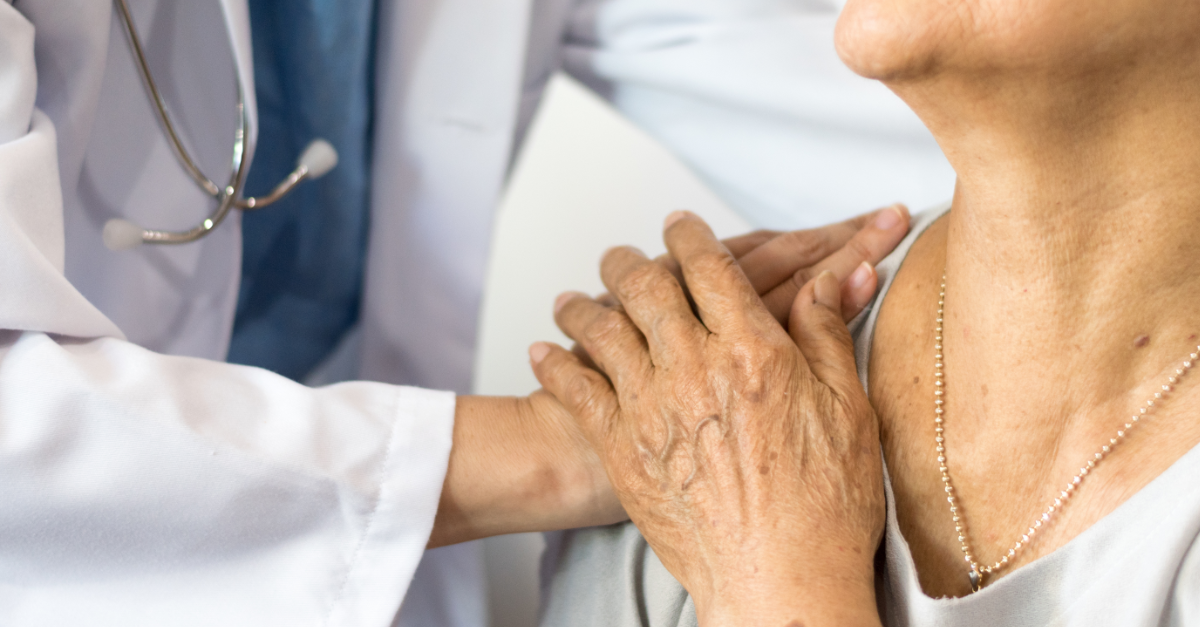Last Updated on June 20, 2019 by Christina Crisologo

Republished with permission from here.
The first day of my medicine rotation, I proudly put on my white coat and stuffed its pockets with my stethoscope, reflex hammer, otoscope and a few pocket-sized books to help get me through the day. The stress and anxiety of taking Step 1 was over. I was going to treat patients! Heal the sick. Comfort those in mourning. I was finally where I wanted to be: in the hospital.
When I arrived, weighed down by the multitude of objects in my white coat, I was greeted by, “go down to the ICU and see T.E., a 40-year-old woman in septic shock and respiratory failure secondary to an abdominal surgery.” With that single sentence I was brought back to reality, and the realization set in: maybe I was not as prepared as I had thought.
As I walked into her ICU suite, prepared to attain as much information as I could from her, I discovered to my dismay that she was intubated and on a ventilator. The standard third-year history and physical I had memorized was going to need some tweaking.
Over the next coming week, we had formed a bond. I spent time with her and her family, pointing at posters showing the letters of the alphabet, or pictures of nouns and verbs, in an attempt to construct the sentences. On some visits I would spend close to an hour in her room, attempting to form her sentences, letter-by-letter, word-by-word.
By midweek, I had formed a routine of rounding on my patients, with T.E being the last. On that Thursday, I walked by her room on my way to the computer station. To my surprise, she had been extubated — taken off the ventilator! I stopped in my tracks, turned to her and her family, and threw up my arms yelling, “You can talk!”
In retrospect, this story represents the reason why I have chosen a career in medicine. No amount of studying a disease process or treatment modalities would have prepared me for this experience. I have found that most physicians who are able create a tight-knit bond with their patients all express the same trait: vulnerability.
Ask yourself: do I allow myself to lay my emotions, fears and thoughts out on the table when interacting with my patients? Do they know I’m terrified right now? What if I make a mistake, make the wrong diagnosis or prescribe the wrong medicine? Medical students and physicians early in their careers are exceptionally vulnerable. We are still learning how to take a history and physical and form a treatment plan. Something as simple as starting IV fluids has the potential to either seriously harm or help a patient. And we know this. This is the reason why we overthink our treatment plan, or begin stuttering when an attending asks us what our plan is. I believe that by showing our vulnerability and acceptance of failure will allow physicians of all ages to improve their practice of medicine.
Vulnerability does not simply apply to tangible medicine either. My experience with T.E was successful only because I walked into her room eager to face a new experience and content with the risk of failure. It is what most medical students face day-after-day. Unfortunately, we do not always realize it. I am writing this short essay to bright to light the power and value of vulnerability and the positive impact it can have on your life and the life of your patients. Do not fear failure. Accept the knowledge that you will fail and be willing to learn from the experience. But I will add a disclaimer: do not make the same mistake twice.
In this regard, there is no career like medicine. We have the capacity to form such meaningful relationships with those in need. Information that not even their closest friends or family members know about, is shared with us. Clearly, patients allow themselves to be vulnerable. Let us create a movement in which physicians reciprocate that feeling. All too often I seen the physician-patient relationship as one sided. It is time for that to change. And it can change! Letter-by-letter, word-by-word, we have the power to display our vulnerability and improve patient care. I certainly would not have realized this if it were not for T.E.
in-Training is the online magazine for medical students. It is the agora of the medical student community, the intellectual center for news, commentary, and the free expression of the medical student voice. All articles on in-Training are contributed by medical students around the world and are edited by its staff of volunteer medical students. Follow us on Facebook, Twitter and Tumblr, or email us to get involved.
